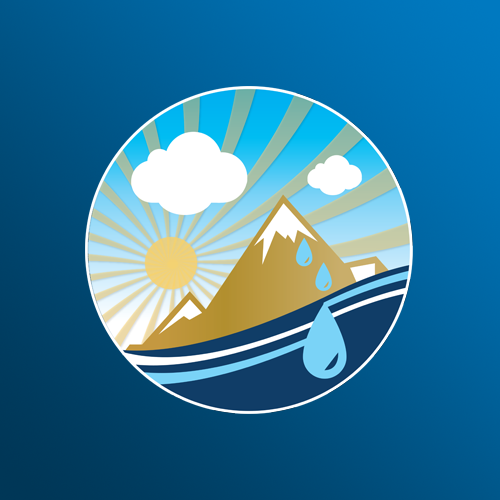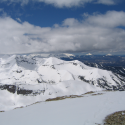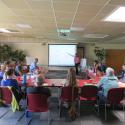Imtiaz Rangwala
-
 Research Scientist, North Central Climate Adaptation Science CenterUniversity of Colorado BoulderCIRES
Research Scientist, North Central Climate Adaptation Science CenterUniversity of Colorado BoulderCIRESImtiaz Rangwala
Imtiaz Rangwala is a research scientist at the Cooperative Institute for Research in Environmental Sciences (CIRES) at the University of Colorado, Boulder and NOAA’s Physical Sciences Division. He is a climate scientist with training in assessing and diagnosing regional scale climate change. He employs the use of climate observations and models for understanding and quantifying climate processes relevant to regional trends in warming and changing hydrological processes. He is specifically interested in advancing the understanding related to changing water balance and climate extremes in the western US (including the Great Plains), as well as its relevance to ecosystem response. His interests also include understanding and working with future climate change uncertainty in the context of decision-making and climate adaptation. He has extensive experience in the development and communication of useful and usable future climate change scenarios for natural resource management. Dr. Rangwala also has expertise on climate change in high elevation regions with past research focused on regions such as the Colorado Rocky Mountains and the Tibetan Plateau. He is part of a global community of scientists focused on examining the issue of elevation dependent climate change in mountain regions.
Projects
Publications
-
Payton, E.A., A.O. Pinson, T. Asefa, L.E. Condon, L.-A.L. Dupigny-Giroux, B.L. Harding, J. Kiang, D.H. Lee, S.A. McAfee, J.M. Pflug, I. Rangwala, H.J. Tanana, and D.B. Wright, 2023: Ch. 4. Water. In: Fifth National Climate Assessment. Crimmins, A.R., C.W. Avery, D.R. Easterling, K.E. Kunkel, B.C. Stewart, and T.K. Maycock, Eds. U.S. Global Change Research Program, Washington, DC, USA. https://doi.org/10.7930/NCA5.2023.CH4
-
Rangwala, I. (2022). Grim 2022 drought outlook for Western US offers warnings for the future as climate change brings a hotter, thirstier atmosphere. The Conversation. May 19, 2022. https://theconversation.com/grim-2022-drought-outlook-for-western-us-offers-warnings-for-the-future-as-climate-change-brings-a-hotter-thirstier-atmosphere-182640
-
Buono, P., Rondeau, R., Bidwell, M., Monroe, S., Rank, G., Roberts, S., Cross, M., and Rangwala, I. (2021). Prioritized Drought Resilience Strategies for the Mancos Watershed. Prepared for Mancos Watershed Group.
-
Rangwala, Imtiaz, Wynne Moss, Jane Wolken, Renee Rondeau, Karen Newlon, John Guinotte, and William Riebsame Travis. 2021. “Uncertainty, Complexity and Constraints: How Do We Robustly Assess Biological Responses under a Rapidly Changing Climate?” Climate 9 (12): 177. https://doi.org/10.3390/cli9120177
-
Esit, Musa, Sanjiv Kumar, Ashutosh Pandey, David M. Lawrence, Imtiaz Rangwala, and Stephen Yeager. 2021. “Seasonal to Multi-Year Soil Moisture Drought Forecasting.” Npj Climate and Atmospheric Science 4 (1): 16. https://doi.org/10.1038/s41612-021-00172-z
-
Clifford, K.R., L. Yung, W.R. Travis, R. Rondeau, B. Neely, I. Rangwala, N. Burkardt, and C. Wyborn (2020). Navigating Climate Adaptation on Public Lands: How Views on Ecosystem Change and Scale Interact with Management Approaches. Environmental Management. doi: 10.1007/s00267-020-01336-y
-
Barsugli, J.J., A.J. Ray, B. Livneh, C.F. Dewes, A. Heldmyer, I. Rangwala, J.M. Guinotte, and S. Torbit (2020). Projections of Mountain Snowpack Loss for Wolverine Denning Elevations in the Rocky Mountains. Earth's Future. doi: 10.1029/2020EF001537
-
Rangwala, I. and M. Hobbins (2019). Flash Droughts in the Mountain West: Emerging Risks under a Warmer Climate. Mountain Views: Chronicles of the Consortium for Integrated Climate Research in Western Mountains, May, 34-37.
-
Dewes C.F., I. Rangwala, J. J. Barsugli, M.T. Hobbins, and S. Kumar (2017). Drought risk assessment under climate change is sensitive to methodological choices for the estimation of evaporative demand. PLoS ONE 12(3), doi: 10.1371/journal.pone.0174045
-
Lukas, J., M. Hobbins, and I. Rangwala (2017). The EDDI User Guide. Evaporative Demand Drought Index. https://psl.noaa.gov/eddi/pdf/EDDI_UserGuide_v1.0.pdf
-
Rangwala, I., C. Dewes, and J. Barsugli (2016). High Resolution Climate Modeling for Regional Adaptation. EOS, Vol. 97 doi: 10.1029/2016EO048615
-
Rangwala, I., Bardsley, T., Pescinski, M., and J. Miller (2015). SNOTEL sensor upgrade has caused temperature record inhomogeneities for the Intermountain West: Implications for climate change impact assessments. Western Water Assessment Climate Research Briefing. Rangwalaetal2015.pdf
-
Rangwala, Imtiaz, Mike Hobbins, Joe Barsugli, and Candida Dewes. 2015. “EDDI: A Powerful Tool for Early Drought Warning.” Western Water Assessment. EDDI_2-pager.pdf
-
Rangwala I., E. Sinsky, and J. Miller (2015). Variability in Projected Elevation Dependent Warming in Boreal Midlatitude Winter in CMIP5 Climate Models and its Potential Drivers. Climate Dynamics, Volume 46, 2115-2122 doi: 10.1007/s00382-015-2692-0
-
Pepin, N., R. S. Bradley, H. F. Diaz, M. Baraer, E. B. Caceres, N. Forsythe, H. Fowler, G. Greenwood, M. Z. Hashmi, X. D. Liu, J. R. Miller, L. Ning, A. Ohmura, E. Palazzi, I. Rangwala, W. Schöner, I. Severskiy, M. Shahgedanova, M. B. Wang, S. N. Williamson, and D. Q. Yang (2015). Elevation-dependent warming in mountain regions of the world. Nature Climate Change, 5: 424-430 doi: 10.1038/nclimate2563
-
Naud C., I. Rangwala, M. Xu and J.A. Miller (2014). A satellite view of the radiative impact of clouds on surface downward fluxes in the Tibetan Plateau. Journal of Applied Meteorology and Climatology, doi: 10.1175/JAMC-D-1114-0183.1171
-
Lukas, J., Barsugli, J., Doesken, N., Rangwala, I., and K. Wolter, (2014). Climate Change in Colorado: A Synthesis to Support Water Resources Management and Adaptation. A Report for the Colorado Water Conservation Board, Western Water Assessment, 114 pp. Climate_Change_CO_Report_2014_FINAL.pdf
-
Chen, Y., C. Naud, I. Rangwala, C. Landry, and J. Miller (2014). Comparison of the sensitivity of surface downward longwave radiation to changes in water vapor at two high elevation sites. Environmental Research Letters, 9(11): 114015 doi.org/10.1088/1748-9326/9/11/114015
-
Rangwala, I., E. Sinsky, and J. R. Miller (2013). Amplified warming projections for high altitude regions of the northern hemisphere mid-latitudes from CMIP5 models. Environmental Research Letters, Volume 8, doi: 10.1088/1748-9326/8/2/024040
-
Naud, C., Y. Chen, I. Rangwala and J. A. Miller (2013). Sensitivity of downward longwave surface radiation to moisture and cloud changes in a high elevation region. Journal of Geophysical Research, 118, 10,072–10,081, doi: 10.1002/jgrd.50644
-
Lukas, J., Wolter, K., Mahoney, K., Barsugli, J., Doesken, N., Ryan, W., Rangwala, I., Livneh, B., Gordon, E., Hoerling, M., and G. Kiladis (2013). Severe Flooding on the Colorado Front Range, September 2013: A Preliminary Assessment. Western Water Assessment. Severe Flooding on the Colorado Front Range.pdf
-
Cayan, D., M. Tyree, K. E. Kunkel, C. Castro, A. Gershunov, J. Barsugli, A. J. Ray, J. Overpeck, M. Anderson, J. Russell, B. Rajagopalan, I. Rangwala, and P. Duffy (2013). Future Climate: Projected Averages. In Assessment of Climate Change in the Southwest United States: A Report Prepared for the National Climate Assessment, edited by G. Garfin, A. Jardine, R. Merideth, M. Black, and S. LeRoy, 101–125. A report by the Southwest Climate Alliance. Washington, DC: Island Press. https://swcarr.arizona.edu/sites/default/files/ACCSWUS_Ch6.pdf
-
Miller, J., I. Rangwala and D. Ghatak (2012). Potential Climate and Hydrological Changes in the Aral Sea Region. In Disaster by Design: The Multiple Caused Catastrophes of the Aral Sea, M.R. Edelstein, A. Cerny and A. Gadaev (eds.), ISBN: 978-1-78190-375-9, Chapter 5. Emerald Group Publishing Limited. https://books.google.com/books?id=g5CLfykfZUAC&lpg=PR6&dq=Disaster%20by%20Design%20Michael%20R%20Edelstein%20rangwala&pg=PA53#v=onepage&q&f=false
-
Rangwala, I., J. J. Barsugli, K. Cozzetto, J. Neff, and J. Prairie (2012). Mid-21st century projections in temperature extremes in the southern Colorado Rocky Mountains from regional climate models. Climate Dynamics, doi 10.1007/s00382-011-1282-z. http://www.narccap.ucar.edu/doc/pubs/Published_Article.pdf


